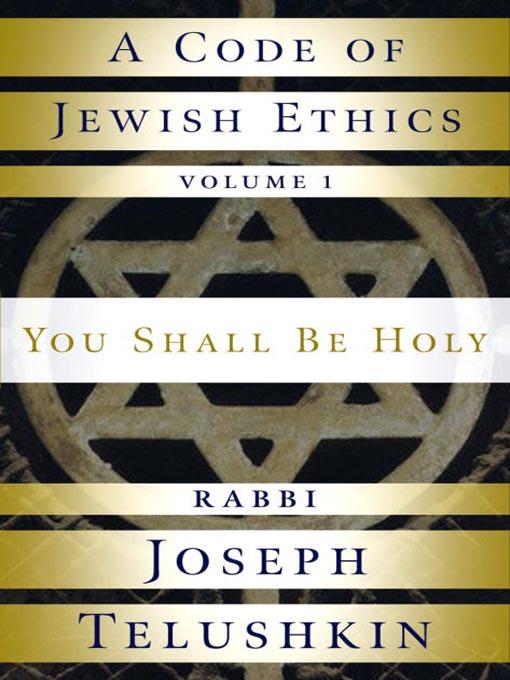
A Code of Jewish Ethics
Volume 1: You Shall Be Holy
فرمت کتاب
ebook
تاریخ انتشار
2009
نویسنده
Katie Ffordeنویسنده
Judith Cooperنویسنده
Rabbi Joseph Telushkinناشر
Harmony/Rodaleشابک
9780307517876
کتاب های مرتبط
- اطلاعات
- نقد و بررسی
- دیدگاه کاربران
نقد و بررسی

Starred review from December 19, 2005
All societies have ethical codes that distinguish between right and wrong actions. For Jews, this is especially significant since Judaism ranks behavior as more important than belief. Behavioral prescriptions are set forth in sacred writings, anecdotes, medieval codes, rabbinical teachings and present-day stories. Telushkin—scholar, author, lecturer, teacher and rabbi—is compiling this voluminous material in order to help Jews "become more honest, decent, and just people." He plans to present his research in a three-volume series of which You Shall Be Holy
is the first. Its primary emphasis is character development, while later volumes will deal with interpersonal relationships and issues of family, friendship and community. This installment is divided into five sections: the task of a lifetime; basic vices and virtues; fair speech; leading a holy life; God and ethics. Basic vices and virtues take up 257 pages, by far the longest section. Here and in the section on fair speech, there are especially stimulating discussions of when hatred and lying are permissible. Telushkin is definitive in his judgments about what is right and wrong behavior. This is an outstanding contribution to understanding Jewish ethics and their relevance for people of all faiths.

February 1, 2006
Projected as the first in a three-volume series, this book deals primarily with character improvement (the second and third volumes will address, respectively, interpersonal relationships, both corporate and individual, and family, friendship, and community). Rabbi Telushkin ("Jewish Literacy") writes in an accessible and simple fashion that allows readers to pick their topics or read straight through. He takes simple concepts like gratitude, criticism, or deception, breaks them down into component arguments or topics, and intersperses his ethical concepts with passages from the Bible, the Talmud, various rabbinic commentaries, and the works of disparate figures like Rabbi Abraham Kook, Catholic mystic Thomas à Kempis, and out-and-out God-haters Friedrich Nietzsche and Karl Marx. The philosophical and spiritual influence of, among others, Rabbi Abraham Twerski (cited as one of Telushkin's mentors in the foreword as well as in the footnotes) and Victor Frank, is abundantly evident in the kind and gentle tone of this gem. Highly recommended for all religious studies collections." -Sandra Collins, Univ. of Pittsburgh"
Copyright 2006 Library Journal, LLC Used with permission.

























دیدگاه کاربران